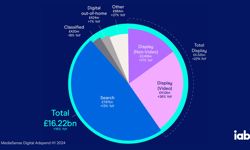Publishers are struggling to get marketing consent from new readers which is damaging lifetime value and opt-out rates are on the increase. These are some of the worrying findings from new research conducted by Kytemark on behalf of permission marketing consultancy Opt-4 and the Royal Mail Permission Users Group.
The “Permissions Please” survey asked marketers about their current experiences in gaining and keeping marketing permission. A third of the respondents were publishers but the findings were consistent across all sectors showing that the permission scenario is challenging everywhere.
74% of respondents agreed that there was a real threat from opt-outs to their businesses. Over a third had real or estimated opt-out rates of over 40% and the majority had seen an increase over the past five years. One publisher stated, “Our database of 1.2 million names has ‘shrunk’ to just 500,000 useable names.”
A significant proportion of respondents thought increasing consumer awareness was driving opt-out. Over communication and poor targeting were known to be causing high unsubscribe rates eroding permissioned records.
Data protection wording was only identified by 22% of respondents as having an impact but Rosemary Smith of Opt-4 believes this is a missed opportunity, “We work with a large number of publishers and have hard evidence that wording does affect engagement. Readers are keen to get value in exchange for their personal data but many publishers just don’t stress the benefits of signing up.”
30% of respondents had conducted tests to optimise permission wording and reported huge variation in the results.
But if wording is crucial, so is effective permissions management. Many circulation databases are woefully inadequate when it comes to storing a range of preferences by channel and product. “The simple ‘no mail’ flag is just not enough anymore; you need a matrix of options to reflect each reader’s permissions. Outsourced subscription managers need to raise their game too”, comments Jenny Moseley, Opt-4 Director and subscription consultant.
The survey pointed to poor training of call centre staff as contributing to high opt-out rates. One interviewee commented: “Monitoring of our call centre revealed some dreadful examples of customer engagement. This included one agent who was heard saying, ‘You don’t want any marketing do you?’ We were very worried this might have just been a tip of the iceberg.”
When asked whether they were gathering permissions for different channels separately, 75% of respondents to the survey were doing so and there was a big difference channel to channel. Telephone and email tied for the dubious honour of most frequently producing the highest opt-out rate. Postal marketing only had the highest opt-out rate in 13% of cases.
Interestingly, the survey showed for the first time that permission rates vary significantly depending on how the information is collected. Opt-out from customers whose data was collected on the web was higher for 32% of respondents; telephone collection also produced a high refusal rate. Collecting consent on paper was generally easier. Judith McClelland, a media consultant at Royal Mail, said this wasn’t surprising, “There’s lots of evidence that consumers have greater trust in tangible pieces of communication so they feel more comfortable providing data and giving permission on paper.”
Lastly, respondents were asked whether they had conducted opt-back-in campaigns. These were most popular in financial services but some publishers had attempted win-back. “This is a tricky area legally”, commented Smith, “but it can be worth it to open lines of communication with readers who would otherwise be excluded from cross sell.” The vast majority of respondents (73%) used the mail to conduct their “re-permission” campaigns.
Over half had used an incentive. One interviewee commented, “I would estimate a 100% better result with incentives (double the amount of people opted in)”. However, incentives could be seen as too much of an inducement, causing the re-engagement communication to breach legal guidelines.
With readers increasingly reticent to give their consent, Moseley summed up the report’s message for publishers, “It’s time to concentrate more resources on improving permission rates before this shortfall turns into a crisis.”
Research Methodology
The online survey was designed by Kytemark Solutions. It was completed by 44 top brands from a range of sectors including publishing. This was followed by in-depth interviews with a selection of respondents and an open meeting of the Royal Mail Permission Users Group.
To download a copy of the full ‘Permission Please’ report visit www.Opt-4.co.uk










